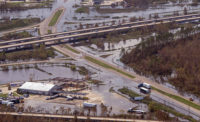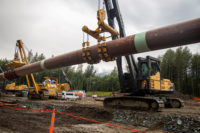A regulatory regime that facilitates pipeline construction with insufficient assessment of need is driving overbuilding that “puts ratepayers at risk of paying for excess capacity, landowners at risk of sacrificing property to unnecessary projects and investors at risk of loss if shipping contracts are not renewed and pipelines are underused,” according to a report from the Institute for Energy Economics and Financial Analysis. The report results from a study of the Mountain Valley pipeline into Virginia from the Marcellus shale field and the Atlantic Coast pipeline into North Carolina from the Utica shale field. It calls the two projects, totaling 800 miles and costing nearly $9 billion, “emblematic of the risks that such expansion creates” for stakeholders and says the Federal Energy Regulatory Commission’s “approach to assessing the need for such projects is insufficient.” The report recommends suspending the projects until a regional planning process can be developed for such infrastructure, lowering the returns on equity granted by FERC to pipeline developers and conducting “an investigation into the relatively high failure rate of new pipelines.” Both projects originally had been scheduled to start construction this year, but they are delayed.
The latest news and information
#1 Source for Construction News, Data, Rankings, Analysis, and Commentary
JOIN ENR UNLIMITEDCopyright ©2024. All Rights Reserved BNP Media.
Design, CMS, Hosting & Web Development :: ePublishing



Post a comment to this article
Report Abusive Comment